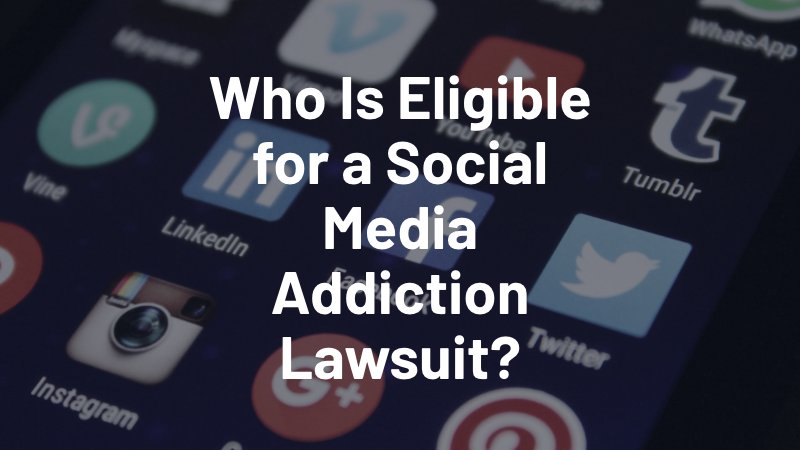Social media platforms have become an integral part of daily life, but growing evidence suggests these companies may have deliberately designed their products to maximize engagement regardless of consequences. People across the country are now taking legal action as they observe behavioral changes related to excessive social media use. These lawsuits aim to hold major tech companies accountable for allegedly creating addictive products that can cause major mental health challenges, especially for young users.

What Is a Social Media Addiction Lawsuit?
Social media addiction lawsuits target major platforms like Instagram, Facebook, TikTok, and Snapchat for allegedly designing products that deliberately addict users. These claims assert that tech companies implemented features specifically engineered to trigger dopamine responses and create dependency.
These companies knew or should have known their platforms could cause psychological harm yet failed to implement adequate safeguards or warnings. As a result, they may be liable for a wide range of damages suffered by the victims and their families, such as:
- Medical expenses, including psychological counseling and rehab programs
- Lost wages and future earnings caused by social media addiction
- Educational expenses due to diminished academic performance
- Pain and suffering, including anxiety, depression, and emotional distress
- Wrongful death damages in cases where social media addiction causes a person to die or take their own life
What Are Some of the Dangers of Social Media Addiction?
The consequences of social media addiction extend far beyond distraction. Vulnerable users often find themselves trapped in harmful cycles of comparison, validation-seeking, and digital dependency. The dangers of social media addiction include:
- Eating disorders—such as anorexia, bulimia, and binge-eating—triggered or worsened by constant exposure to idealized body images and beauty standards
- Depression resulting from negative social comparison, cyberbullying, and feelings of inadequacy
- Anxiety disorders fueled by fear of missing out, online rejection, and pressure to maintain the perfect online persona
- Self-harm behaviors learned or reinforced through harmful online content and communities
- Suicidal ideation and suicide attempts—the most devastating consequence, often accompanied by other mental health conditions
- Sleep disruption, which can lead to physical health problems and worsened emotional regulation
- Academic decline as social media addiction redirects users’ focus away from schoolwork and real-world achievements
Who Qualifies for a Social Media Addiction Lawsuit?
You may qualify to file a social media addiction lawsuit if you or your child developed an addiction to platforms like Instagram, TikTok, or Facebook that caused measurable harm. To qualify, you need to show that you use social media in a way that demonstrates addictive behavior—such as the inability to limit time on platforms despite negative consequences, withdrawal symptoms when unable to access social media, or escalating usage that interferes with daily activities.
Additionally, you must show you or your child suffered injuries linked to this addiction. Qualifying injuries include clinically diagnosed conditions such as eating disorders, depression, anxiety, obsessive-compulsive behaviors, impulse control issues, or instances of self-harm or suicidal thoughts. Medical, school, and work records can help establish these connections.
Begin Your Journey to Justice with Estey & Bomberger, LLP
If you or your child has suffered psychological harm from manipulative social media platforms, you may have grounds for legal action. The attorneys at Estey & Bomberger are currently representing families nationwide in these emerging cases—we can help you seek justice. Contact us today at (800) 260-7197 for a free, confidential consultation, and let our attorneys evaluate your potential claim.
